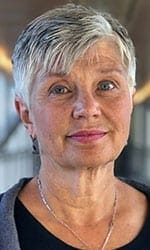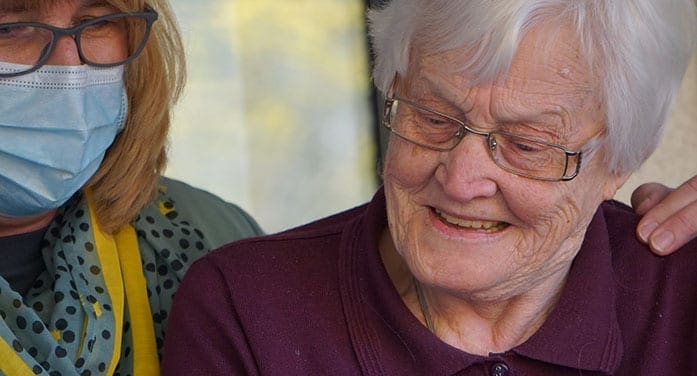A University of Alberta researcher is hoping to start a Canada-wide revolution to combat discrimination against older people, starting with a change to the way nursing students are educated.

Sherry Dahlke
“Ageism has been described by other scholars as the last “ism” that is socially accepted,” said Sherry Dahlke, associate professor in the Faculty of Nursing. “It’s subtle and insidious in societies around the world.”
Dahlke is leading a cross-Canada project to test her online training modules that tackle some of the “geriatric giants” – cognitive impairment, continence and mobility – as well as enhancing communication with older persons.
She said nurses’ biases – both overt and hidden – can affect the care older patients receive in acute, community and continuing care settings.
“If we have negative perceptions like, ‘You’re just old’ or ‘It’s normal to get confused,’ then it is going to influence how we provide care and can influence people’s quality of life.”
The project is funded by the Social Sciences and Humanities Research Council and builds on a previous study funded by SSHRC and a McCalla Professorship award from the U of A.
Though ageism is pervasive, the World Health Organization notes it is not well understood.
“Some theorists suggest it is because we fear dying that we project negative attitudes to people who are older and closer to dying,” Dahlke said.
Ageism can affect family and work relationships, as well as the service older people receive when they purchase goods and services.
“I experienced it myself when I stopped dyeing my hair and let it go grey in my 50s,” said Dahlke. “I realized that if I say I am against ageism, I should walk the talk.”
Although we’re ageing from the day we’re born, we start to internalize negative perceptions about ageing from an early age, she said, citing an American study that estimated the annual cost of ageism to the healthcare system at $63 billion.
“It can lead to depression and erode the will to live, and that self-perception can contribute to a whole host of other chronic conditions,” she said. “If someone tells themselves, ‘I’m old and it’s OK to have pain,’ then they may not seek assistance for a condition that is treatable.”
Ageism is complex. Hostile ageism is overt and easy to recognize. Benevolent ageism, which involves being overly accommodating and taking away older people’s self-determination to do things for themselves, is harder to recognize, Dahlke said.
As part of the project, 700 nursing students at two universities will take the online courses Dahlke developed. The students will be tested for a spectrum of ageist attitudes before and after the courses.
In Dahlke’s earlier study, nursing students reported that they didn’t recognize their need for more education about how to care for older people until they had graduated, entered the workforce and found themselves unprepared.
Dahlke is recruiting older persons to be part of an advisory group that includes academic gerontological experts, representatives from advocacy groups CanAge, HelpAge and the Canadian Gerontological Nurses Association. The group will evaluate the learning modules and determine whether this method might work with other healthcare providers or even school-aged children.
Dahlke noted that older Canadians are a diverse group who experience ageing differently. While there’s no single antidote to diminish the negative effects of ageing, she said research has shown benefits from strong intergenerational relationships, physical activity and weight training, eating a largely plant-based diet, and having purpose in life. Genetics and environment can also affect how we age.
Recent movements to combat other forms of discrimination such as anti-Black and anti-Indigenous racism give Dahlke hope that attitudes can be changed.
“We need to stand up for all people who are being treated poorly, including older people,” she said. “If we get everyone to start to recognize when they are being ageist, then we can make a choice to do something different.
“We need to get the message out to people of all ages.”
| By Gillian Rutherford
This article was submitted by the University of Alberta’s Folio online magazine. The University of Alberta is a Troy Media Editorial Content Provider Partner.
© Troy Media
Troy Media is an editorial content provider to media outlets and its own hosted community news outlets across Canada.


